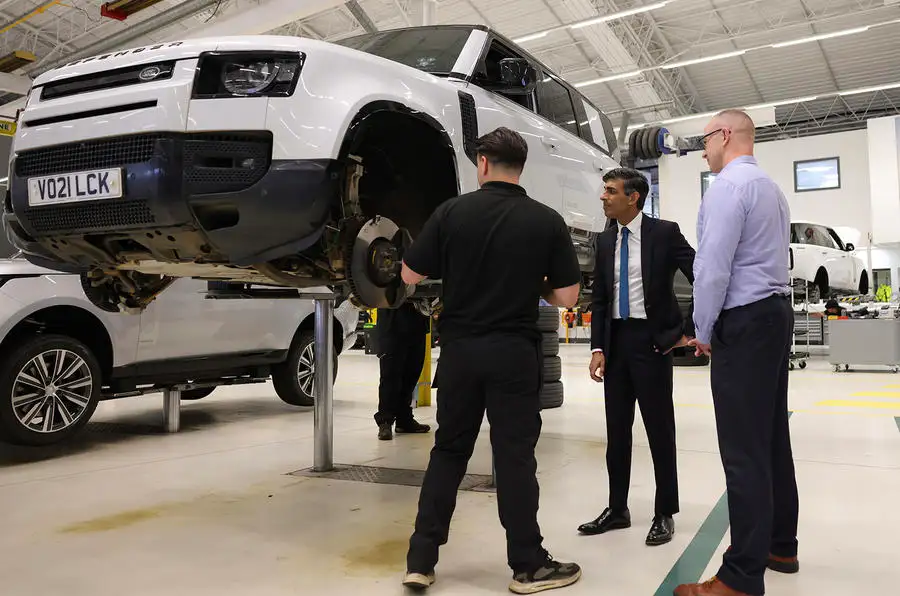UK Prime Minister announces five-year delay to non-zero emission ban as part of wider series of climate change policies.
The UK government will postpone the ban on the sale of new petrol- and diesel-engined cars from 2030 until 2035, Prime Minister Rishi Sunak has confirmed.
The ban was due to come into force in 2030, although certain hybrid powertrains capable of ‘significant zero-emission running’ were to be allowed until 2035. But that date has now been pushed back so that all cars can be sold until 2035. It is part of a series of delays to key ‘green’ policies that Rishi Sunak has announced – although he said that the government is still committed to the UK reaching net zero carbon emissions by 2050.
In his statement, Sunak said that “we’re working hard to make the UK a world leader” in electric vehicles, citing that “we’ve already attracted billions of new investment.”
He added: “I expect by 2030 the vast majority of cars sold will be electric, because the costs are reducing, the range is improving, the charging infrastructure is growing. I also think, at least for now, it should be you that makes that choice, not the government forcing you to do it. Because the upfront cost is high. We’ve got further to go to get the charging infrastructure in place.
“So to give us more time to prepare we’re going to ease the transition to electric vehicles. You’ll still be able to buy a combustion engined vehicle until 2035.”
Sunak noted that the 2035 date brings the UK in line with other countries including the European Union and Canada.
The prime minister also vowed that existing petrol- and diesel-engined cars would be allowed to be sold on the second-hand market after 2035 – although since the ban only ever applied to new cars, this would have the case under the previously announced 2030 target.
Speaking more broadly about the government’s commitment to its 2050 net zero target, Sunak said that he thought that could be achieved without “burdening” the public with “unrealistic” policies.
He added: “The test should be: do we have the fairest credible path to reach net zero by 2050 in a way that brings people with us? Since I’ve been prime minister I’ve examined our [previous] plans and I don’t think they meet that test.” But he added that he was “unequivocal” that the UK would meet all its international climate target commitments.
It is unclear yet how the delay in the ban will work, and whether it will affect the planned ZEV (zero-emission vehicle) mandate that will require car makers to sell an increasing number of zero-emission cars in the coming years.
Electric car sales have surged in recent years as new models have arrived on the market: they accounted for 20.1 per cent of car sales in the UK last month, with sales rising 72.3 per cent year-on-year. But the majority of those sales were to fleet and business customers, and there have been concerns about softening demand from private buyers put off by higher prices. The UK government currently offers no incentives or subsidies to encourage the purchase of electric cars.




